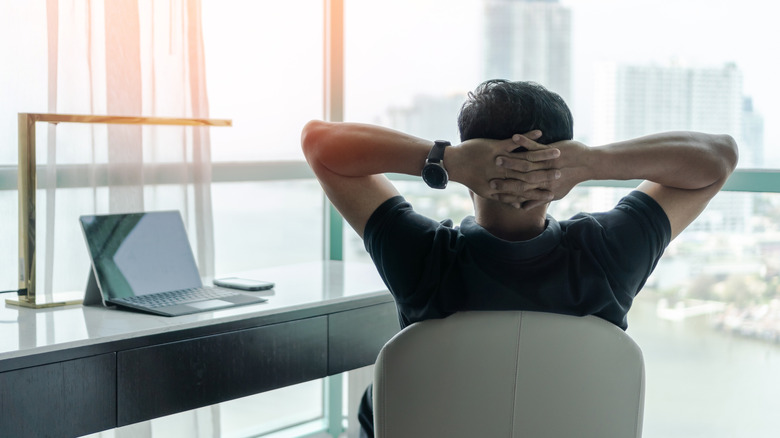Why Tourists Should Avoid Using Public Hotel Computers
For most travelers, checking their email at a hotel business center is a thing of the past. Most of us have laptops now that we can use in our rooms, or we do all our work on our phones. However, there are times when your computer might not be working right or you didn't bring it with you. Or maybe you need to print something out. In those cases, the hotel's business center might seem like the perfect solution. However, using a public hotel computer can open your data up to thieves and hackers, causing all sorts of issues. It's a risk likely not worth taking when all you want is a hard copy of your travel documents. While it's great to print your boarding pass rather than relying on your mobile device, you might want to skip that step at the hotel and do it at an airport kiosk instead.
With a hotel computer, you don't know who has been on it before you. Perhaps they opened a spam email or visited a site that downloaded malware to the device. Someone may have even deliberately put a bug on the computer to capture your information. Additionally, you may not realize that you haven't logged out of the browser when you've finished (especially if you're rushing to catch a plane or make your timed entry reservations for an attraction). That can allow the next user to find your info. Simply put, it's not worth the risk.
Keeping your data safe by not using the hotel computer
The danger of data breaches was strong enough all the way back in 2014 that the Department of Homeland Security's National Cybersecurity and Communications Integration Center and the U.S. Secret Service got together to issue an advisory warning the hospitality industry about keyloggers in hotel computers. That tech can allow bad actors to access what someone types and get their login credentials. Knowing that the industry itself was warned should give you pause.
In addition, there are a few other things you should know to keep your data safe while on vacation. It's a good idea to be aware of the dangers of using free hotel Wi-Fi – it's too easy for someone to get your information when on the same public network. Instead, use your phone as a mobile hotspot for your computer, and stay off the Wi-Fi altogether. Another option is to invest in a VPN, or a virtual private network, whether you're on a cruise, in a hotel, or on public Wi-Fi. It can keep your device's IP address and location masked. (As a bonus, you can often stream things from other countries on your device, no matter where you are.) In addition, the FBI posted a warning on X in 2023 about charging your devices at the airport because of the risk of malware in USB ports. Instead, bring a charging block along and charge that (not your phone) in the USB port. Then, you can charge your device from the block. Finally, it's a good idea to change your passwords as often as you can, especially after a trip where you've logged in with one, and turn on two-factor authentication when it's available.

